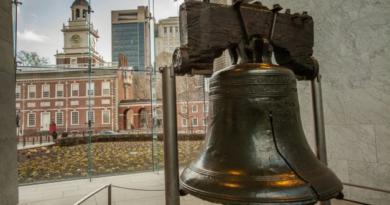New Zealand bans TikTok from phones of parliamentarians

Days after the U.K. banned TikTok from government devices, New Zealand has joined the trend by prohibiting the short video app from parliamentary devices. The move comes amid growing security concerns about TikTok-owner ByteDance handing user data to the Chinese government.
The country’s authorities cited cybersecurity reasons and said the app would be banned on any device with access to the parliament’s network by the end of March. However, the authorities are making an exception for people who might need the app to “perform their democratic duties.” They didn’t specify what that might mean.
Parliamentary Service Chief Executive Rafael Gonzalez-Montero told Reuters in an email that the government took the decision after consulting with cybersecurity experts and authorities of other countries.
“Based on this information, the Service has determined that the risks are not acceptable in the current New Zealand Parliamentary environment,” he said.
“On advice from our cyber security experts, Parliamentary Service has informed members and staff the app TikTok will be removed from all devices with access to the parliamentary network.”
In response to this, TikTok said that the company wasn’t consulted or notified of the ban.
“We are disappointed in the decision to block the TikTok app from Parliamentary Service-managed devices. This decision was made without consultation with, or notification, to TikTok. Data security is of the highest importance to TikTok, and there is no evidence to suggest that TikTok poses a security risk to New Zealanders. We believe it is important that decision-making is based on fact, not misinformation,” A TikTok Spokesperson told TechCrunch in a statement.
The app said that it has written to New Zealand’s Parliamentary Service to seek an explanation and have a discussion with them to address any issues.
New Zealand joins a plethora of nations that have banned TikTok from official devices. In December, the U.S. House of Representatives forbade the app from the devices of all staff and lawmakers. Other countries like Canada and Belgium have also joined the fray by banning the app. Last month, the European Union also ordered its staff to remove TikTok from their devices.
Notably, India banned TikTok from the country back in 2020 by saying the app threatened the “national security and defense of India.” At the time, India was the short video app’s biggest market with more than 200 million users.
While bans from various government devices might worry TikTok, its China-based owner’s more pressing concern might be a looming U.S. embargo. The Biden administration is reportedly threatening a ban, unless ByteDance severs its ties with TikTok and sells the app.
TikTok has repeatedly tried to convince the U.S. (and other) governments that China can’t access any user data. It has been going through an audit by Oracle and asking the press and regulator to visit its newly constructed Transparency Center that lets them take a peek at the app’s moderation policies. The company has spent nearly $1.5 billion on the charm offensive campaign in trying to appease the authorities.
“If protecting national security is the objective, divestment doesn’t solve the problem: a change in ownership would not impose any new restrictions on data flows or access,” TikTok spokesperson Maureen Shanahan told TechCrunch earlier this week. “The best way to address concerns about national security is with the transparent, U.S.-based protection of U.S. user data and systems, with robust third-party monitoring, vetting, and verification, which we are already implementing.”



